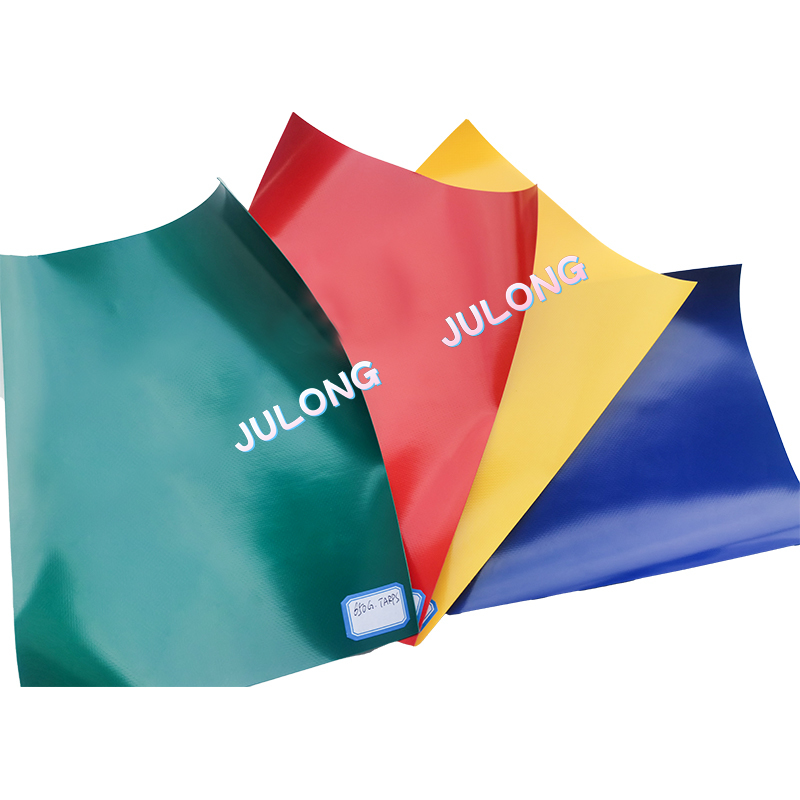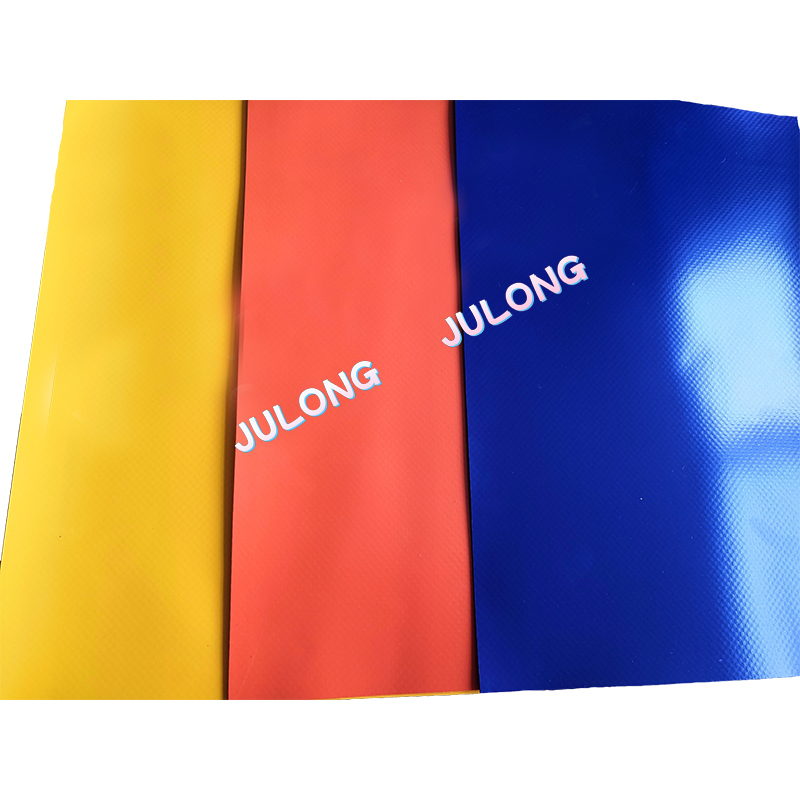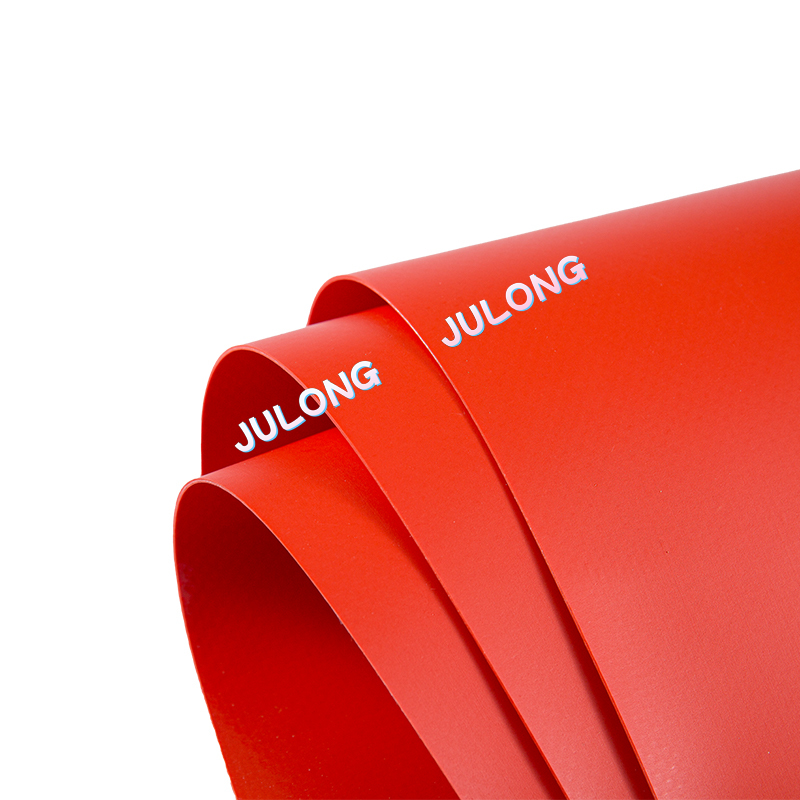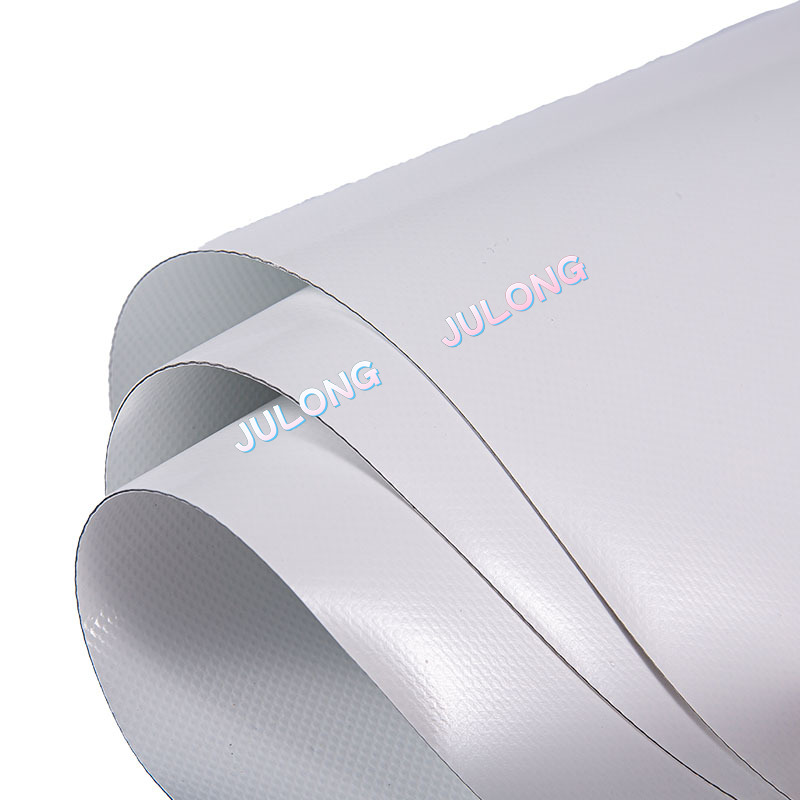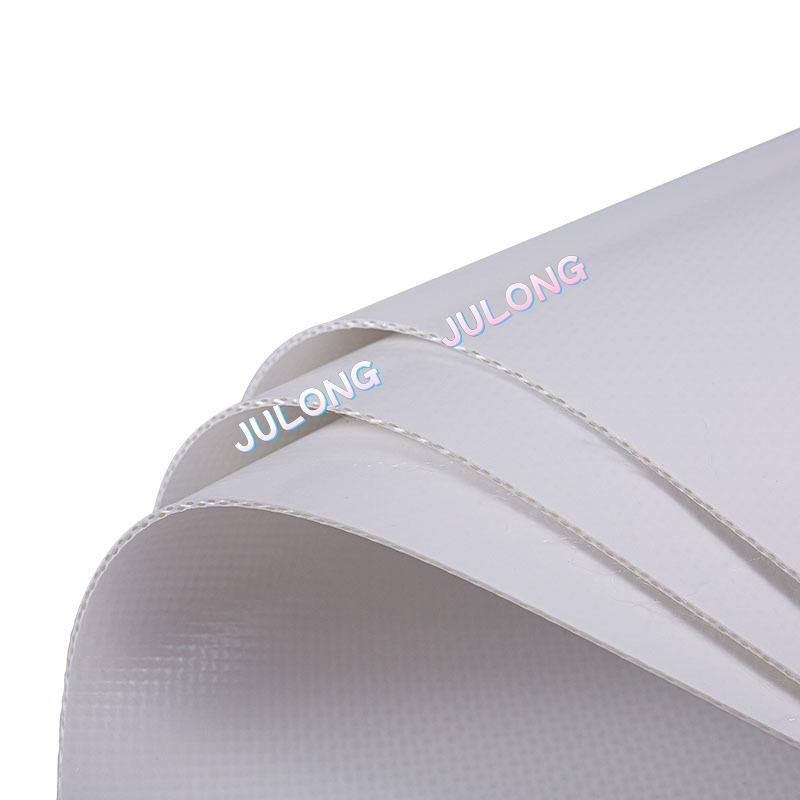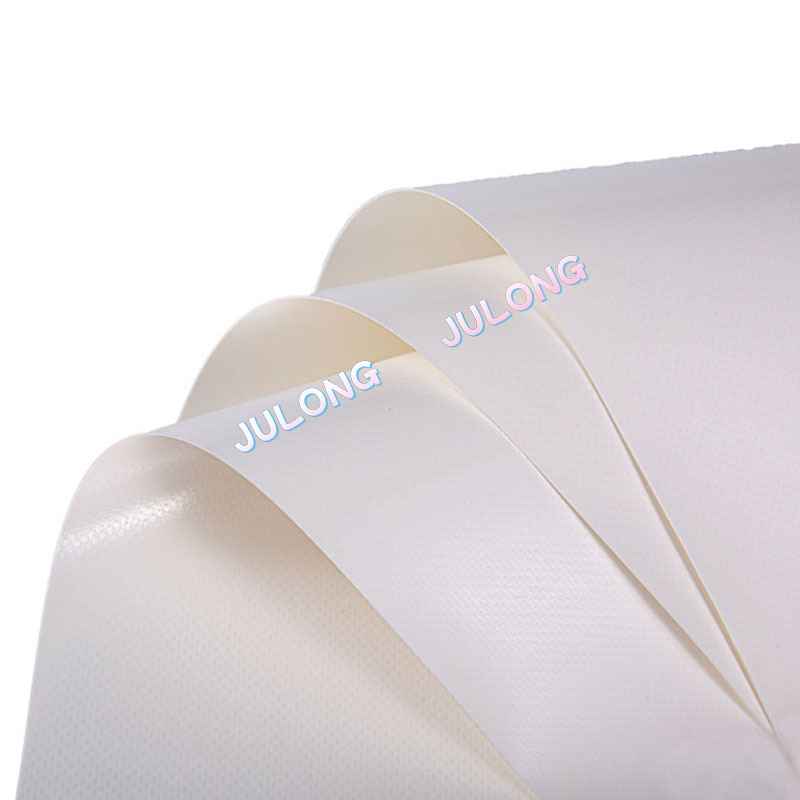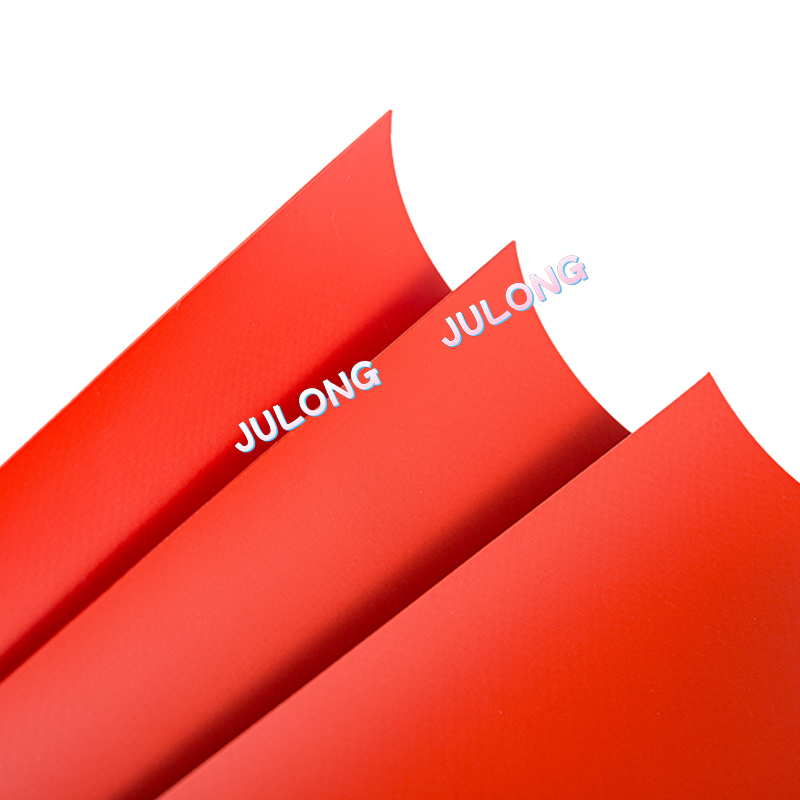Introduction to Knife-Coated PVC Polyester Tarps
PVC polyester knife-coated tarps are premium protective sheets designed for heavy-duty industrial, agricultural, and construction applications. Unlike traditional laminated tarps, knife-coated tarps involve a process where liquid PVC is evenly spread over a polyester base fabric using a knife-coating method. This results in a consistent, durable layer that bonds firmly with the base material, offering enhanced strength, weather resistance, and longevity.
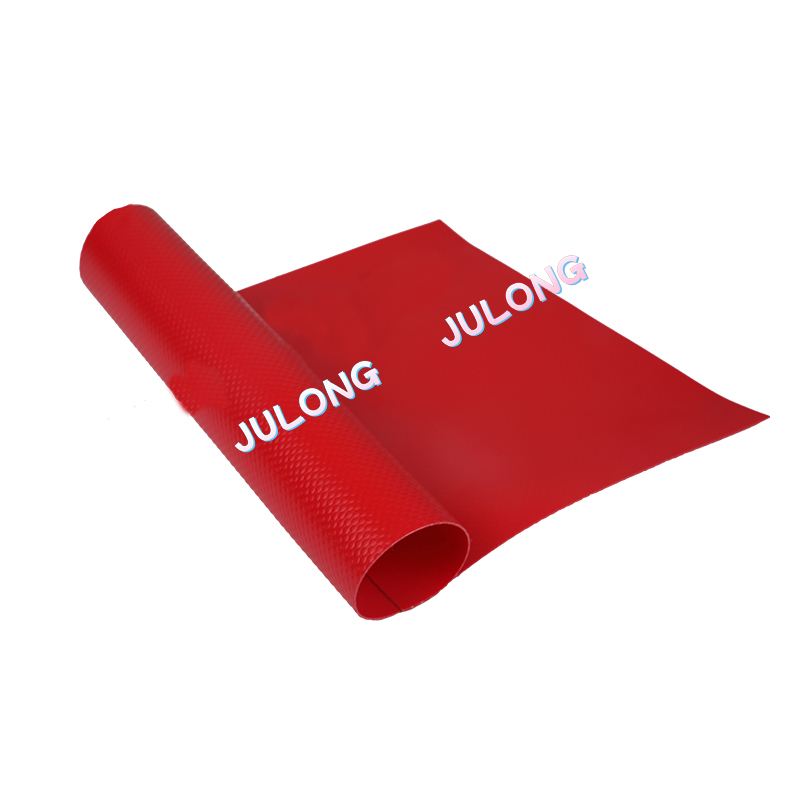
Knife-Coating Process and Material Structure
The knife-coating process ensures a uniform PVC layer on the polyester substrate. Key aspects include:
- Polyester Base Fabric: Provides tensile strength, flexibility, and dimensional stability.
- Knife-Coating Method: Liquid PVC is applied with a precision knife, ensuring uniform thickness and a strong bond with the fabric.
- Surface Finish: Can be glossy, matte, or embossed depending on aesthetic and functional requirements.
- Curing Process: PVC is heated to adhere firmly to the polyester, enhancing durability and chemical resistance.
Durability Advantages
Knife-coated PVC polyester tarps are designed to withstand harsh conditions. Their durability surpasses most laminated tarps due to several factors:
- Strong adhesion of PVC to polyester prevents peeling or delamination over time.
- Excellent tensile strength resists tearing and stretching even under high tension.
- High abrasion resistance allows use in environments with sharp or rough surfaces.
- Flexibility at low temperatures ensures performance in cold climates without cracking.
Weather and UV Resistance
Exposure to the elements is a critical factor in tarp performance. Knife-coated PVC tarps excel in weather protection:
- UV-resistant additives in the PVC layer reduce fading, brittleness, and surface degradation.
- Waterproof PVC coating prevents water penetration, keeping protected materials dry even during heavy rain.
- High resistance to wind, hail, and snow loads due to combined strength of PVC and polyester.
- Chemical and oil resistance ensures protection in industrial applications exposed to harsh substances.
Comparison with Other Tarps
Knife-coated PVC polyester tarps provide measurable advantages compared to other common tarp types, such as laminated PVC tarps or canvas tarps. Key differences include:
| Tarp Type | Durability | Weather Resistance | Flexibility | Maintenance |
| Knife-Coated PVC Polyester | High | Excellent | Good at low temps | Low, easy to clean |
| Laminated PVC | Moderate | Good | Limited at low temps | Moderate |
| Canvas | Low | Poor | Good | High, requires waterproofing |
Applications of Knife-Coated PVC Tarps
The unique properties of knife-coated PVC polyester tarps make them ideal for a wide range of applications:
- Industrial covers for machinery, equipment, and storage areas.
- Agricultural protection for crops, silage, and livestock shelters.
- Construction site covers to protect materials and scaffolding from weather damage.
- Transport tarps for trucks, containers, and heavy goods.
- Temporary shelters for events or emergency response operations.
Maintenance and Longevity
Knife-coated PVC polyester tarps require minimal maintenance compared to other tarp types. Recommended practices include:
- Regularly rinse with clean water to remove dirt, dust, or chemical residues.
- Inspect edges and seams for any signs of wear or fraying and repair if necessary.
- Store in a dry, shaded area to prevent UV degradation when not in use.
- Avoid sharp objects or excessive stretching that can damage the PVC coating.
Conclusion
Knife-coated PVC polyester tarps provide significant advantages over laminated and canvas tarps. Their superior durability, excellent weather and UV resistance, flexibility in extreme temperatures, and low maintenance requirements make them ideal for industrial, agricultural, and construction applications. Understanding these benefits helps users select the right protective solution for long-term reliability and performance.


 English
English عربى
عربى